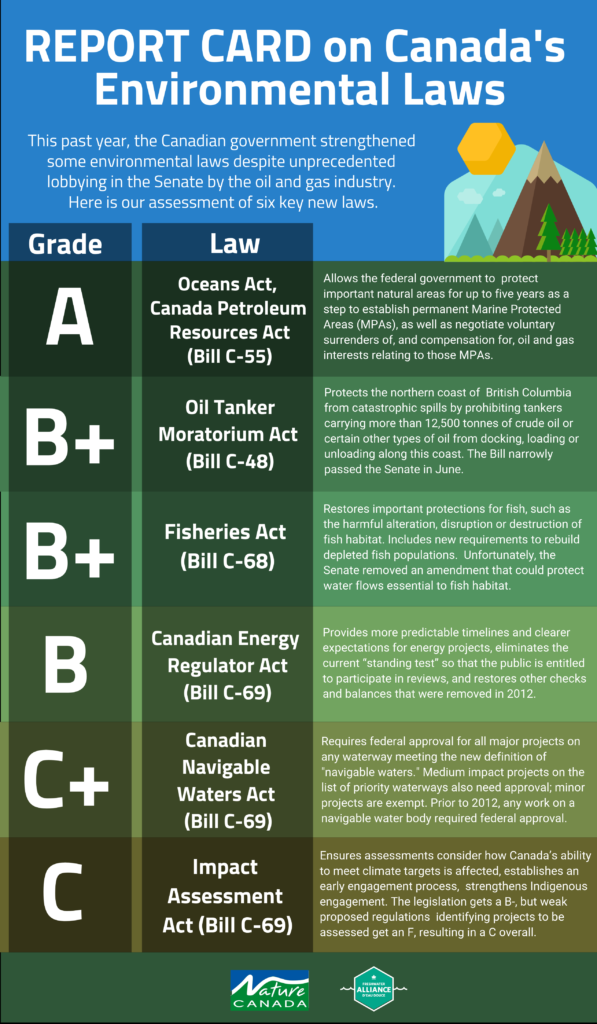Infographic: Report card on government’s environmental laws
This past year saw some strengthening of laws to conserve nature despite unprecedented oil and gas industry lobbying in the Senate. Here are our grades for the six key new laws:
C Impact Assessment Act (Bill C-69) establishes a single agency responsible for federal impact assessments, requires assessment of sustainability,ensures that assessments consider how Canada’s ability to meet our climate targets is affected, establishes an early engagement process, and strengthens Indigenous engagement in impact assessments. Unfortunately, oil and gas and nuclear regulators won the right to chair panels thanks to a Senate amendment. The statute itself gets a B – grade, but the proposed regulations identifying projects subject to the law are even weaker than current regulations, warranting an F; overall result is a C.
B + Fisheries Act amendments (Bill C-68) restore important protections for fish habitat, once again prohibiting harmful alteration, disruption or destruction of fish habitat and including new requirements to rebuild depleted fish populations. Unfortunately, the Senate removed an amendment establishing a framework to protect water flows essential to fish habitat.
C + Canadian Navigable Waters Act (Bill C-69) extends protections for any major project happening on any navigable water. Federal approval is required for all major projects on any waterway meeting the new definition. Medium impact projects on the list of priority waterways also need to seek approval; minor projects are exempt.
B + Oil Tanker Moratorium Act (Bill C-48) protects the northern British Columbia coast from catastrophic spills by prohibiting tankers carrying more than 12,500 tonnes of crude oil or certain other types of oil from docking, loading or unloading along this coast. A Senate Committee voted against the bill but it narrowly passed the full Senate in June
B Canadian Energy Regulator Act (Bill C-69) provides more predictable timelines and clearer expectations for energy projects, eliminates the current “standing test” so that the public is entitled to participate in regulatory reviews, and restores the regulator’s pre-2012 decision-making authority to issue a certificate for major projects subject to Cabinet approval.
A Oceans Act, Canada Petroleum Resources Act amendments (Bill C-55) allow the federal government to temporarily protect important natural areas for up to five years as a step to permanent Marine Protected Area protection, as well as negotiate voluntary surrender of, and compensation for, a company’s oil and gas interests needed to establish a Marine Protected Area.



